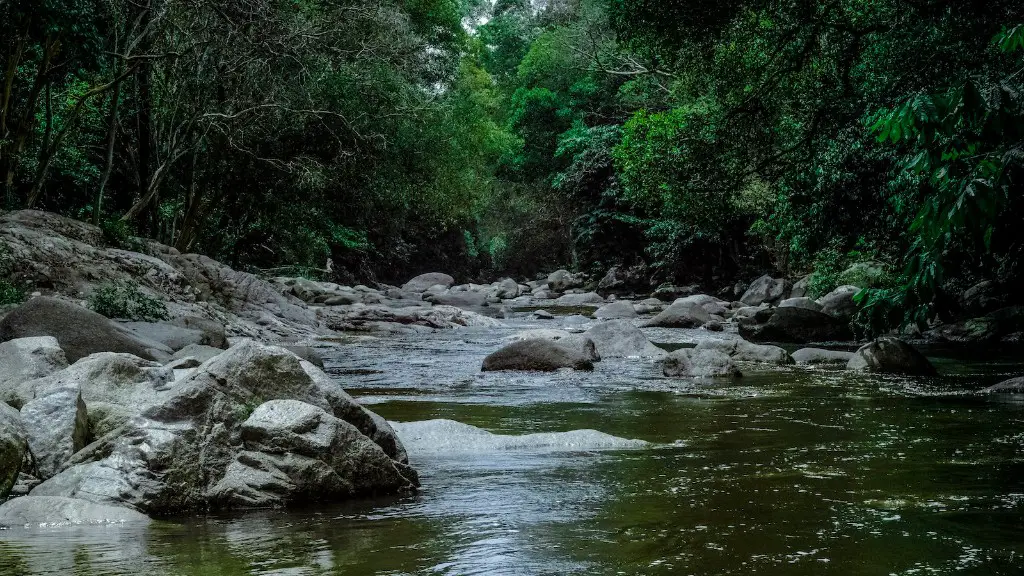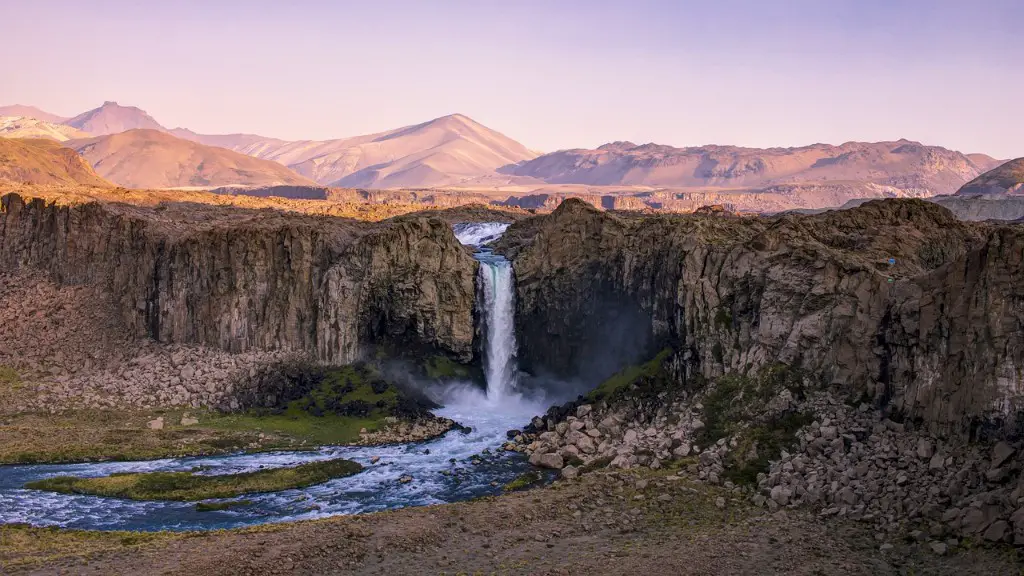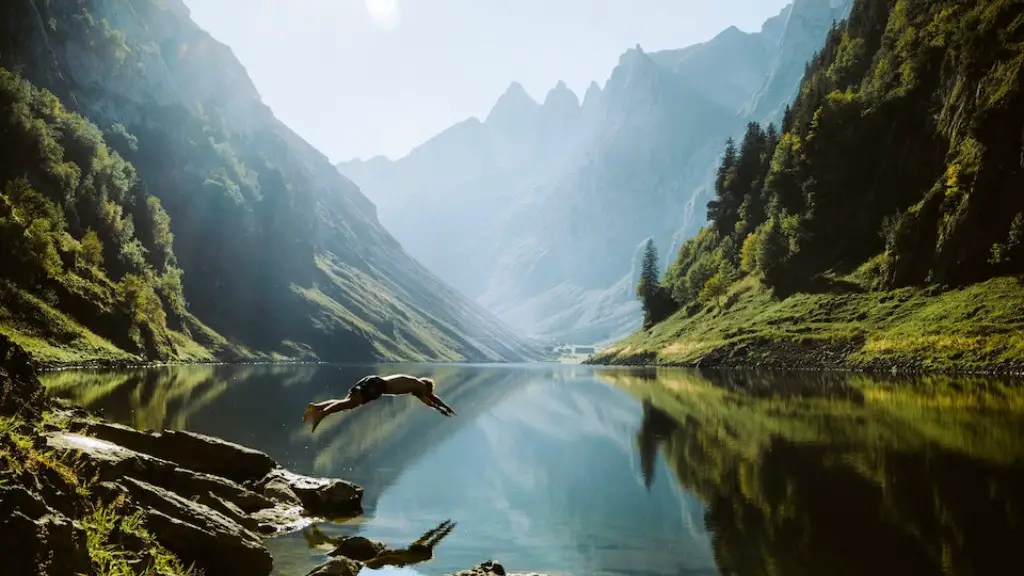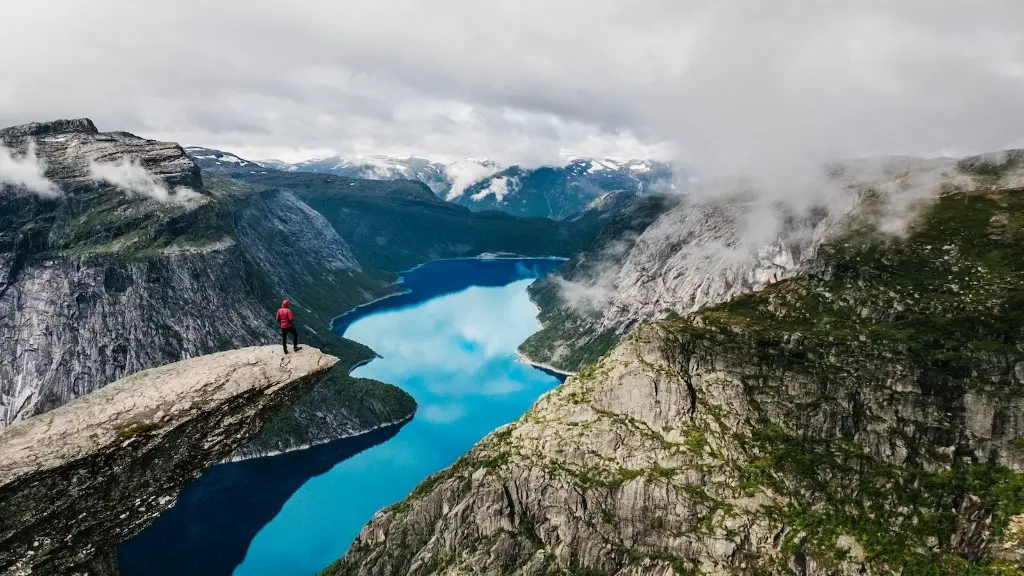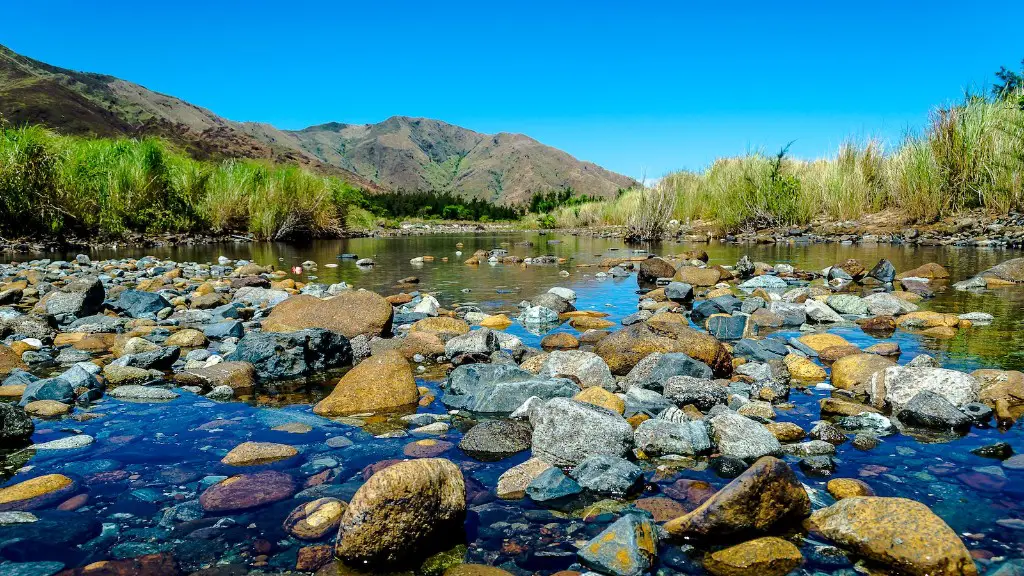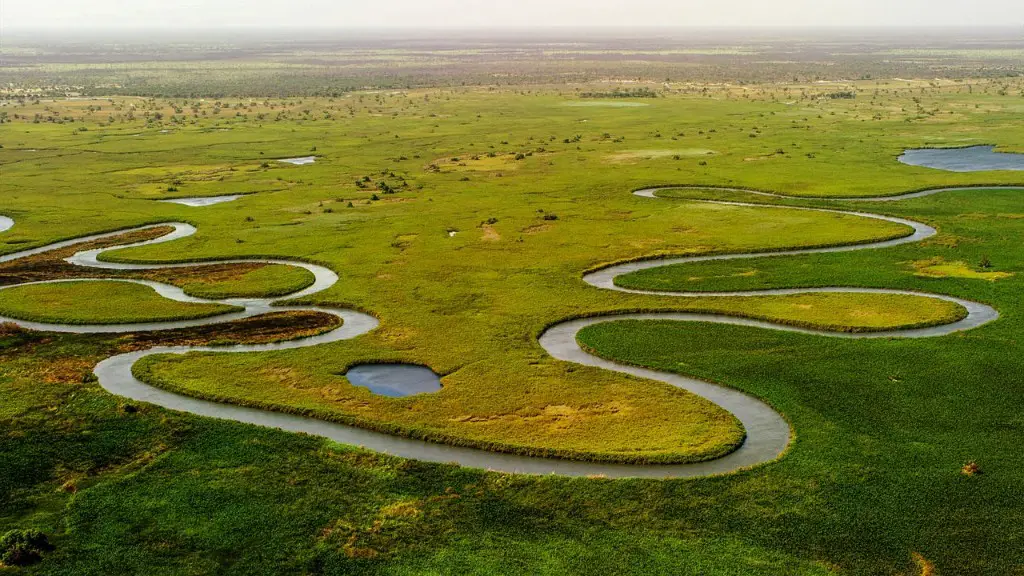The mighty Mississippi River is one of the most iconic rivers in the world and flows through ten US states, forming an integral part of North American history and culture. It is the second longest river in the US, surpassing the Missouri with a length of 2,320 miles. But where did the river come from? How was the Mississippi River formed over thousands of years?
It is believed that the Mississippi was created during the last ice age, approximately 20,000 years ago. As the glaciers receded, the area around the river began to thaw and melt, forming a stream of water that became known as the Mississippi. In turn, this flow of water was eventually joined by other streams, creating the current layout of the river.
The main source of the Mississippi River is Lake Itasca in north-central Minnesota. As it passes through the Midwest, the river takes many forms. In some places, it is wide and slow-moving, while in others it turns into a series of deep, narrow channels. The course of the Mississippi also changes often due to the varying landscape caused by erosion and ground shifting.
Although the Mississippi River has changed dramatically since it was first formed, it remains a vital source for both commerce and recreation. It continues to be used for transportation, irrigation, electricity generation and as a provider of important minerals and nutrients.
Environmentalists and river advocates often talk about the beauty of the Mississippi River and its importance for life in the United States. The river is home to more than 400 species of fish, birds, amphibians, reptiles and mammals. It is also a vital part of the surrounding ecosystems, providing transportation, food and habitat for a wide variety of species.
Despite its importance, the Mississippi River is facing many challenges. Pollution, sewage and runoff from agricultural operations are all harming the ecological balance of the river. As a result, the health of the river has suffered and its water quality has diminished in several areas.
In recent years, conservation efforts have been underway to protect the Mississippi River and its unique ecosystem. Organizations like the Mississippi River Fund and the Mississippi River Coalition are working to ensure that the river is healthy and vibrant for generations to come.
Vital role in US history
The Mississippi River has had an incredible impact on US history, from the early colonization of the natives to the exploration of the new world. Native Americans such as the Sioux and the Chippewa were first to inhabit the region and used the river for fishing and transportation. Later, French explorers and settlers ventured into the area and established trading posts, forts and settlements along the river.
The importance of the river in trade and transportation quickly became apparent to the new American colonies. In the early 1800s, the Mississippi River was the main conduit of commerce, allowing goods to be transported between the east and the west. This role in commerce continued until the completion of the railways in the mid-1800s, when the Mississippi shifted away from its role of transportation and became known as an agricultural and industrial powerhouse.
Today, the Mississippi is seen as an integral part of American culture and history, with many cities and towns along its course embracing its importance and legacy. It is celebrated in music, literature and art, with events like the Delta Blues Festival in Clarksdale, Mississippi becoming increasingly popular.
The river also serves as a powerful symbol of the struggle of African Americans for racial equality and civil rights. Numerous songs, poems and books have been written about it, with the river being a metaphor for the African-American experience. The Mississippi serves as a reminder of the African-American journey from slavery to emancipation and civil rights.
Impact on global climate
As the world warms, the Mississippi is rising. According to data from the US Geological Survey, the river has risen more than 4 feet in the last 20 years, with scientists predicting that global warming will lead to even higher water levels in the future.
Higher water levels in the Mississippi have a profound effect on the surrounding environment, causing flooding, erosion and sediment buildup. In addition, the river carries more pollutants and chemicals into the Gulf of Mexico, which can cause ecological damage. The warmer temperatures also lead to changes in precipitation patterns, which can have a major impact on the river’s water levels.
As the river continues to rise, the effects of climate change will become increasingly apparent. In response, scientists are working to understand the effects of warmer temperatures on the Mississippi and other major US rivers, in order to develop strategies for adapting to the changes.
Conservation efforts are also being put in place to protect the river and its ecosystems. Government agencies are working with local communities to implement stricter pollution regulations and to ensure that new development is done in a way that does not harm the river.
Recreational activities
For many people, the Mississippi River is a source of recreation. Throughout the year, people flock to the river to go fishing, boating, camping and hiking. In addition, many resorts and lodges offer visitors a chance to stay on the river and experience its beauty and vastness up close.
Nature lovers appreciate the rich flora and fauna of the region, including the endangered species that make their home along the river. Visitors can also take in the stunning views from the stunning bridges and dams that span the Mississippi, or explore the history of the area which is rich in Native American and European culture.
The Mississippi River is also a popular destination for water sports enthusiasts, who can take advantage of the numerous lakes, streams and creeks that feed into the river. Swimming, kayaking and canoeing are all popular activities, as are hunting and fishing. With the right equipment and knowledge, visitors can explore the hidden depths of the river and discover its natural wonders.
Popular River Cruise
For those looking for a unique way to experience the Mississippi, river cruises have become increasingly popular. Tourists can opt for a pilot-guided tour, which offers an up-close view of the river as well as a narration of its history and culture. Alternatively, visitors can relax on a lazy river cruise, taking in the scenery and wildlife as they gently drift along the current.
Many cruises also offer shore excursions, allowing passengers to explore nearby towns, wildlife preserves and historic sites. These trips are a great way to gain a better understanding of the region and its people, as well as to witness the awe-inspiring beauty of the Mississippi.
Preserving the river for future generations
The Mississippi River has been around for thousands of years and will continue to exist for many more. The important thing is that it is protected and preserved, so that future generations can continue to enjoy and appreciate its grandeur and beauty.
Numerous organizations are actively working to conserve the river and its ecosystems, while governments are working to reduce pollution and protect its habitats. In addition, local communities and individuals can play a role in the preservation of the Mississippi River by engaging in prudent practices and avoiding activities that could be damaging to the river.
The Mississippi is an essential part of US identity and culture, and it is up to us to ensure that it continues to thrive for generations to come.
Conclusion
The Mississippi River has had an unrivalled impact on US history, culture and environment. It is an incredible source of beauty and inspiration, providing countless recreational opportunities for locals and visitors alike. In order to continue to enjoy the splendor of the Mississippi, it is essential to protect and preserve the environment, so that future generations can appreciate its grandeur and beauty.
